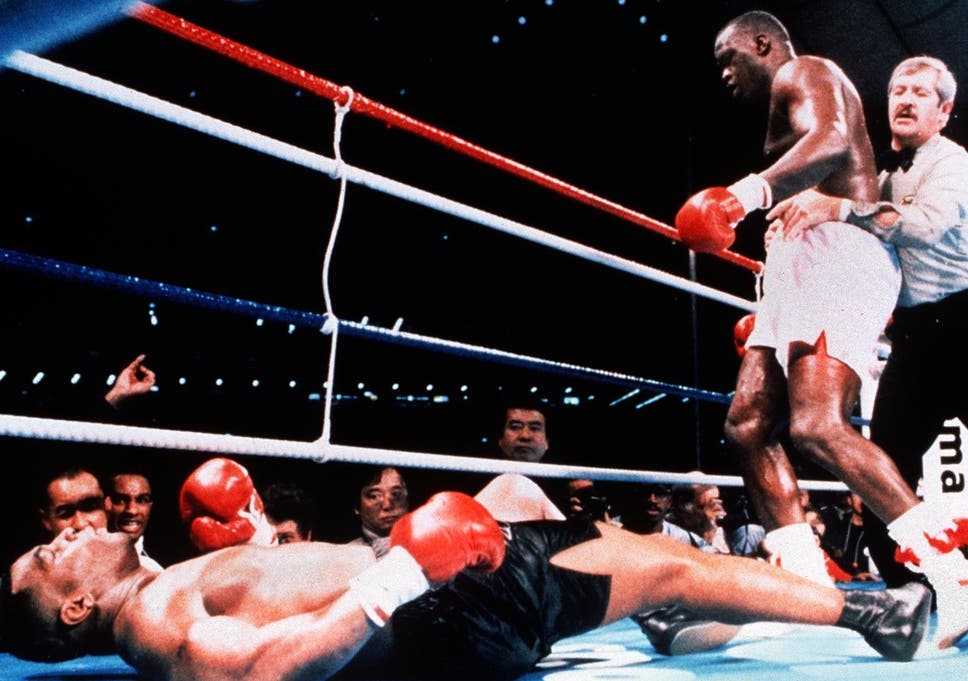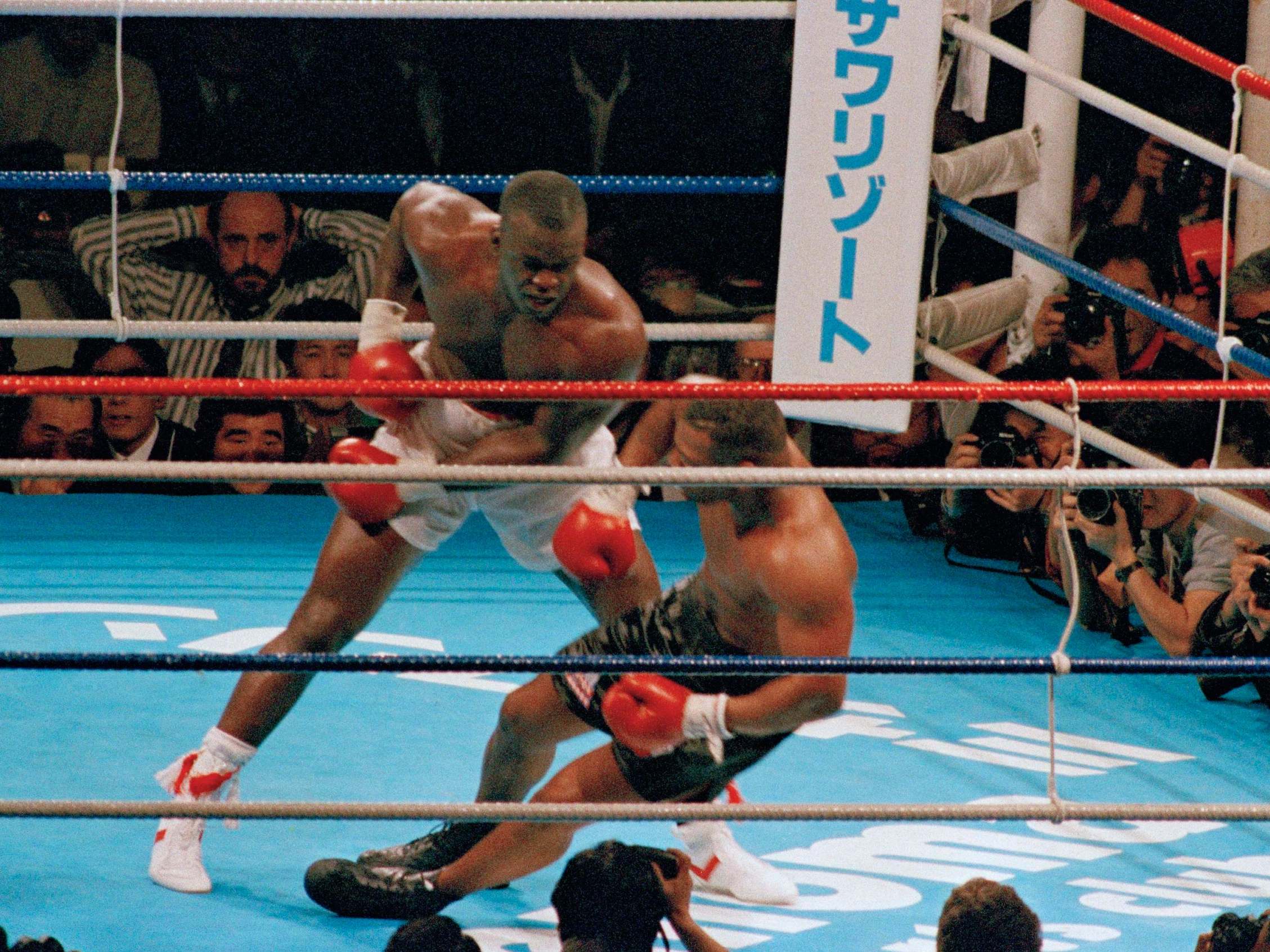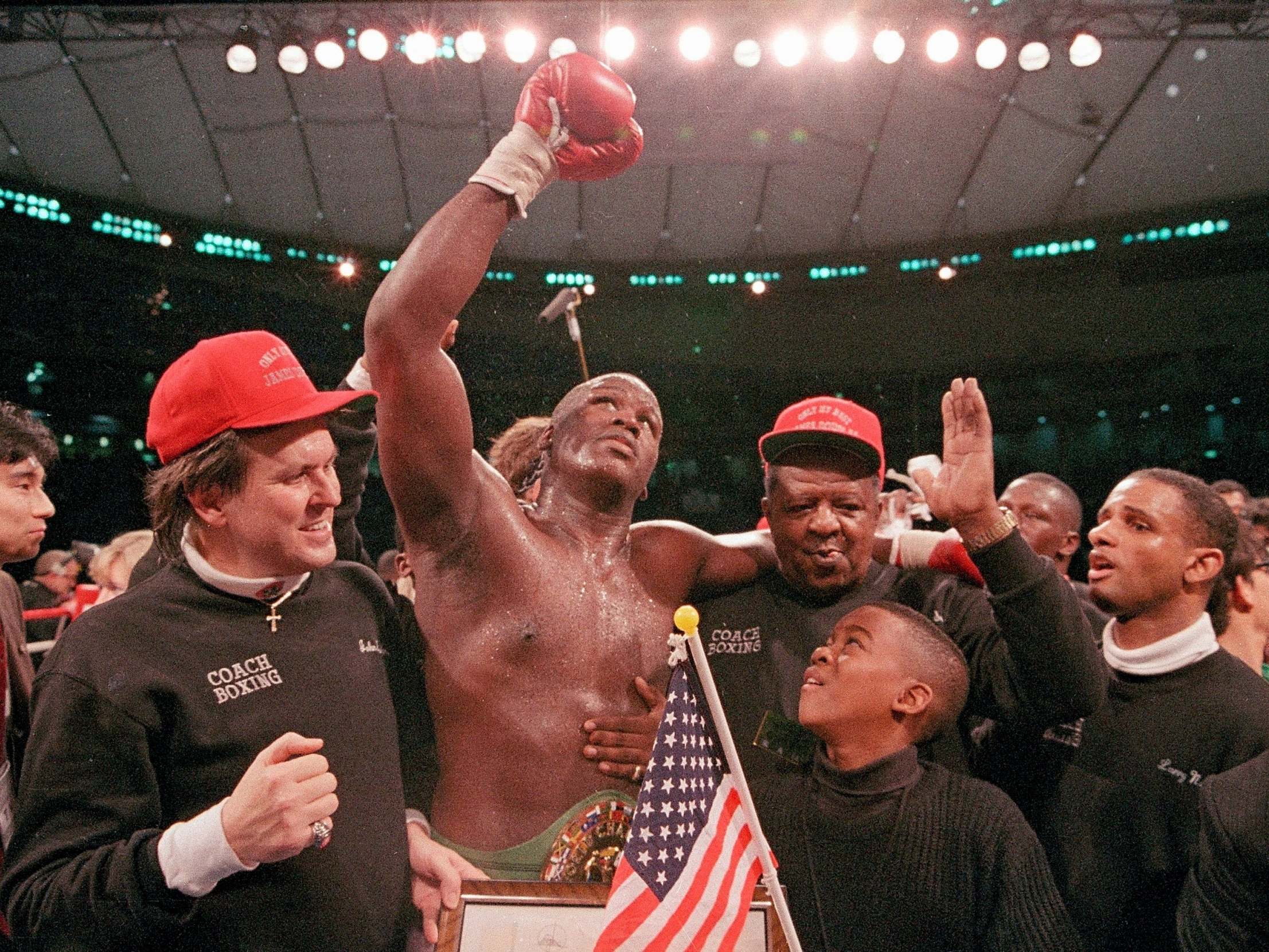
Nobody really cared about the heavyweight title fight in Tokyo that early morning when Mike Tyson, after weeks of sleeping with Geisha girls, walked to the ring to massacre Buster Douglas in February 1990.
At ringside in the Dome, two wild-haired powerbrokers from vastly different, but equally sordid, business worlds took their seats to watch Mike do what Mike had been doing far too easily, for far too long. Don King and Donald Trump were all smiles as they relaxed to watch the three or four-round destruction. The bookies had Douglas at 40-1 and in Las Vegas just one punter had placed a bet on the roly-poly nice guy from Ohio. It was meant to be so easy; Tyson had a fight planned with Evander Holyfield that would set box-office records.
King and Trump started to panic early and were ironing out a deal for a rematch long before the end. There is some confusion – in boxing that means there are several untrue versions – about when exactly the pair shook hands on a second fight. It was probably after Douglas survived a long count in round eight and just before the still shocking moment when Tyson, groping on the canvas like a midnight drunk for his gumshield, failed to beat the count in round ten. It was over, Tyson was finished. However, luckily for King, he had Douglas under contract.
Douglas had simply refused to lose and Tyson had done nothing to prepare for a fight during his crazy stay in Tokyo. His “wilding” is well documented, celebrated to be honest, and in the Douglas fight his legs and not his desire to continue betrayed him. His comic corner had only a condom filled with ice to bring down the brutal and critical swelling to their fighter’s left eye. That was a ring-tool malfunction, but more damning was their combined inability to motivate their boss when Douglas refused to wilt, fold and play the surrender game. Tyson’s corner were shameful under pressure, they deserted him in need.
Going in that early morning Tyson was unbeaten in 37, including ten in world title fights. Douglas had lost four times and, more importantly, his bravery and guts were questioned after his loss in a world title fight to Tony Tucker in 1987. ‘Douglas had no heart’ was meant to be the simple backstory to yet another Tyson walkover while the boxing press – most stayed away from Tokyo – questioned his selection.

There was an alternative tale that day. Tyson had a revolving door to his bedroom for sex workers for three weeks in Tokyo. He was depressed, his moods savage and he was knocked down quite heavily in sparring 19 days before the fight. Nobody saw the signs. Douglas was considered a total no-hoper. Many of us repeated a similar act of wilful negligence last year before Anthony Joshua lost to Andy Ruiz in New York. Ruiz had no chance under any circumstances: “He’s not Buster Douglas”, we mused. Joshua never had a revolving door, I should quickly add, but there were many ignored signs.
However, Douglas was at the very centre of a perfect storm of emotional unrest, a crushing triple of hurt, the type of chaos that trainers fear, but at the same time relish. Douglas had lost his mother two weeks earlier, had split with his wife and the mother of his child had been diagnosed with terminal cancer. It is safe to say that Douglas was in turmoil as he flew to Tokyo; he landed two weeks after Tyson and his party people.
“I knew he would break if I kept on hitting him and what did I have to lose?” Douglas told me one afternoon in Las Vegas a decade after the fight. Tyson did break. He was well and truly broken before he went down heavily for the end. Douglas just kept on throwing the stiff jab, a shot from the history books, finding space for the big right and not flapping when hurt. Tyson was made poor by Douglas in Tokyo, made to look bad. Douglas should always get credit.

King and Trump left ringside that Sunday knowing they had a deal for an Atlantic City rematch at one of Trump’s ailing properties. However, King first had magic to perform at noon in Tokyo as he set about persuading everybody in attendance and involved in the fight that Tyson was the winner, and that Douglas should not be the new world champion. It was utter lunacy, believe me. King needed about six hours to get the WBC and WBA – two of the sanctioning bodies – to withdraw recognition of Douglas as champion. “The count was long – Tyson knocked out Douglas before Douglas knocked out Tyson,” hollered King. It is, even with time, still hard to grasp the fevered insanity of those hours: the desperation, the greed, the vanity. Looking back now it is without doubt one of the most outrageous reversals ever taken in sport, any sport, in any epoch and under any rules.
It took a day for sense to return to the boxing madhouse, and by Monday evening, Buster Douglas was reinstated and universally recognised as the world heavyweight champion. Tyson arrived in New York battered, bruised and contrite for a conference: “He won,” he uttered, a capitulation barely audible under the click of cameras. Big Buster’s real achievement was ruining Tyson. It would never get better for Buster, and Tyson would never be the same. Don King lost his hold on the heavyweight championship in Tokyo, his reign was finished.
Douglas broke his contract with King, made 24 million dollars for losing to Holyfield, King and Trump received 4.5 million dollars in compensation for not promoting the rematch, Trump is the American president, Tyson still haunts Las Vegas, King is still promoting and Douglas, after one diabetic coma, spends his time fishing. And, spending his money.
February 11th, 1990 was the day Tyson lost, King lost it, Trump did a deal and boxing took the turn it needed. It is not easily forgotten, even if nobody cared at the time.







